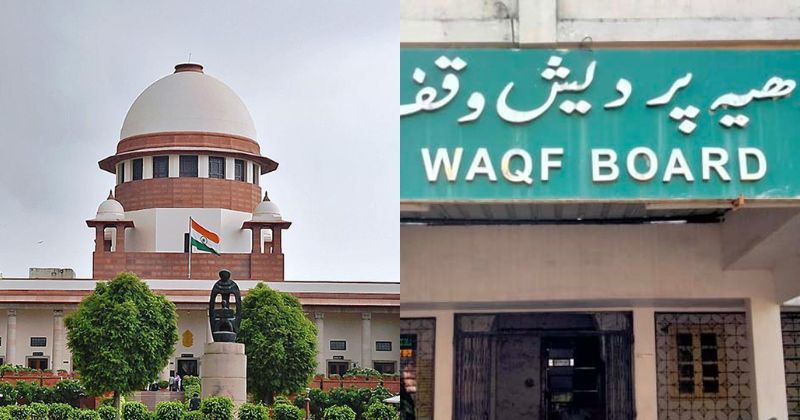In a significant hearing on Tuesday, the Constitution Bench of the Supreme Court, now led by Chief Justice of India, Justice B.R. Gavai, signalled a cautious and constitutionally sound approach in the challenge to the Waqf Act. The Bench, also comprising Justice A.G. Masih, underscored a core legal principle: “Every legislation passed by Parliament carries a presumption of constitutionality.”
This principle isn’t just judicial prudence—it’s embedded in the democratic architecture of our Constitution. Article 13(2) of the Constitution prohibits the state from making laws that abridge fundamental rights. However, unless a law is prima facie found to violate these rights, courts are restrained from issuing interim stays. As the Bench rightly observed, any stay on a law enacted by Parliament and assented to by the President must be justified by an extraordinarily compelling and glaring case.
This is a marked departure from the rather more activist approach under the recently retired Chief Justice Rajiv Khanna-led bench, which had indicated a willingness to consider interim relief in a case questioning the Waqf Act’s constitutionality. In contrast, the present Bench seems more attuned to the principle of separation of powers—a foundational element of our democracy.
The role of the judiciary, though essential, must not transgress into the domains of the legislature and the executive. Article 245 vests legislative powers in Parliament and state legislatures. Article 50 further directs the separation of the judiciary from the executive. Within this structure, the judiciary is not meant to govern or legislate, but to interpret and uphold the law.
That’s why the Centre, through Solicitor General Tushar Mehta, has submitted a detailed 1,200-page counter affidavit, asserting that judicial review has its limits. The executive, acting through Parliament, has the prerogative to legislate, and the judiciary cannot override this unless the legislation violates the Constitution.
Petitioners’ counsels, notably senior advocates Kapil Sibal and Abhishek Manu Singhvi—both veteran Parliamentarians and courtroom tacticians—appear to be deploying familiar tactics: widen the scope, delay the hearing, and in the process, create political theatre. Their insistence on expanding the challenge beyond the three specific questions identified by the earlier bench has drawn criticism from the government and even mild rebuke from the Bench.

This isn’t the first time either Sibal or Singhvi has tried to influence timelines in politically sensitive cases. Recall Sibal’s 2018 request to defer the Ayodhya title suit verdict until after the general elections, arguing it might “polarise the electorate.” That attempt failed. The verdict came post-elections, paving the way for the Ram Mandir’s construction—an outcome the Congress could neither stop nor spin.
Their strategy, often high on legal semantics but low on constitutional substance, may be seen as a way to embarrass the government or slow down a case they know they are likely to lose. However, as former judges and constitutional experts have repeatedly cautioned, courts must not become arenas for political gamesmanship.
The constitutional challenge to the Waqf Act revolves around whether the Act violates Articles 14 (right to equality), 15 (prohibition of discrimination), and 26 (freedom to manage religious affairs). Critics argue that the Waqf Board enjoys undue authority over public and private lands, often with minimal oversight and against principles of natural justice. Petitioners claim the Act unfairly favours one religious community, raising questions about its compatibility with secularism—a basic feature of the Constitution.
Whether or not these arguments stand judicial scrutiny will depend on the evidence and legal reasoning presented, not on political posturing. And rightly so, the Bench has refused to be hurried or misled by rhetorical flourishes or expansive legal submissions that cloud the core issues.
The recent questioning by President Droupadi Murmu regarding the Supreme Court’s judgment on the powers of Governors and state governments underlines another crucial reality: judicial pronouncements can trigger constitutional friction if they attempt to redraw the lines of federalism or executive authority. That backdrop likely informs the current court’s restraint.
In a democracy governed by checks and balances, no institution is supreme, but each must respect its limits. The CJI’s directive to petitioners to build a “very strong and glaring case” before seeking any stay is not a retreat from scrutiny—it is a reaffirmation of constitutional discipline.






